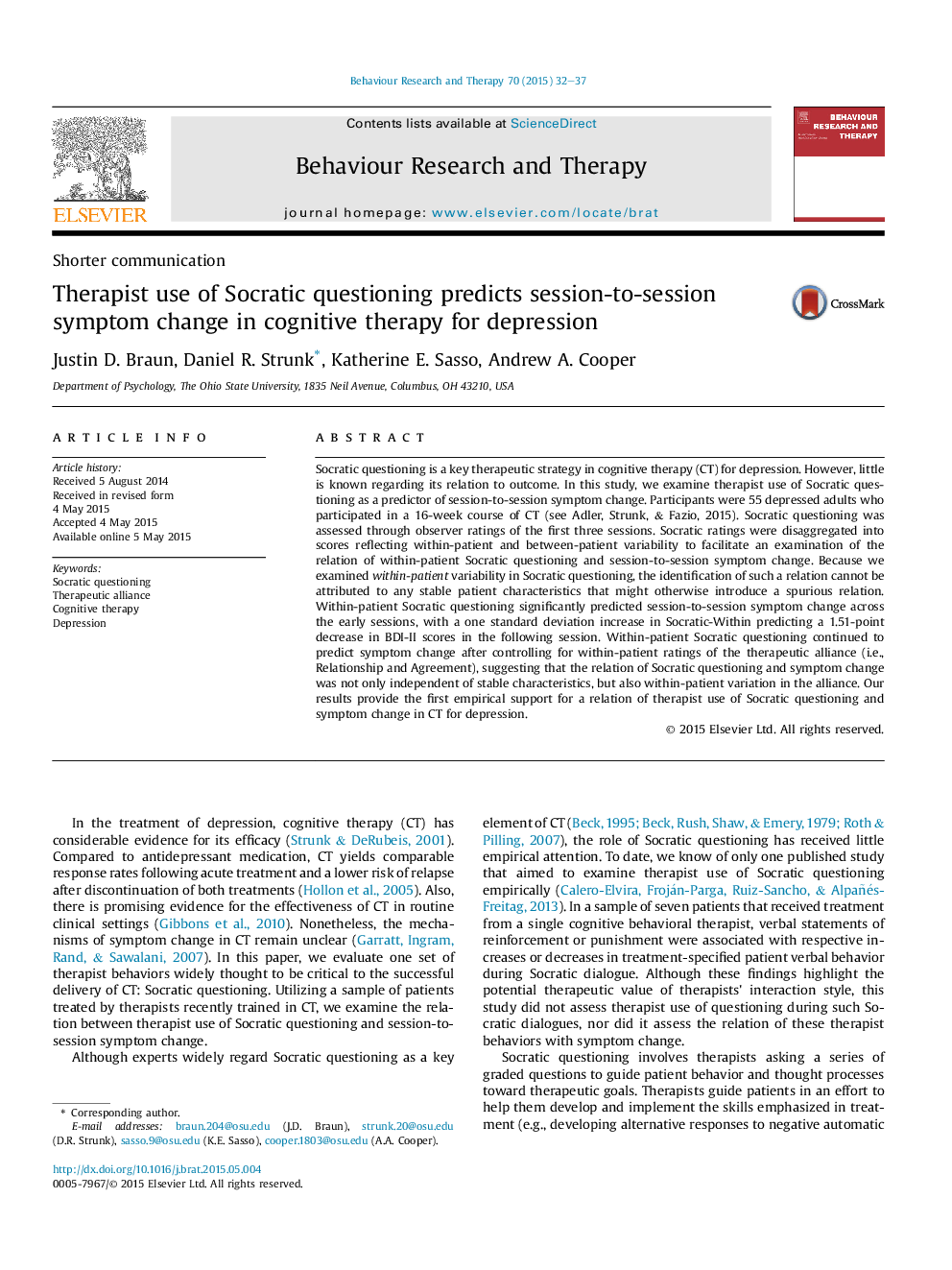| کد مقاله | کد نشریه | سال انتشار | مقاله انگلیسی | نسخه تمام متن |
|---|---|---|---|---|
| 7262364 | 1472779 | 2015 | 6 صفحه PDF | دانلود رایگان |
عنوان انگلیسی مقاله ISI
Therapist use of Socratic questioning predicts session-to-session symptom change in cognitive therapy for depression
ترجمه فارسی عنوان
استفاده از درمانگر از پرسشنامه سوکراتی، تغییرات علائم جلسه ای را در درمان شناختی برای افسردگی پیش بینی می کند
دانلود مقاله + سفارش ترجمه
دانلود مقاله ISI انگلیسی
رایگان برای ایرانیان
کلمات کلیدی
سوءاستفاده از سقراط، اتحاد درمانی، درمان شناختی، افسردگی،
موضوعات مرتبط
علوم پزشکی و سلامت
پزشکی و دندانپزشکی
روانپزشکی و بهداشت روانی
چکیده انگلیسی
Socratic questioning is a key therapeutic strategy in cognitive therapy (CT) for depression. However, little is known regarding its relation to outcome. In this study, we examine therapist use of Socratic questioning as a predictor of session-to-session symptom change. Participants were 55 depressed adults who participated in a 16-week course of CT (see Adler, Strunk, & Fazio, 2015). Socratic questioning was assessed through observer ratings of the first three sessions. Socratic ratings were disaggregated into scores reflecting within-patient and between-patient variability to facilitate an examination of the relation of within-patient Socratic questioning and session-to-session symptom change. Because we examined within-patient variability in Socratic questioning, the identification of such a relation cannot be attributed to any stable patient characteristics that might otherwise introduce a spurious relation. Within-patient Socratic questioning significantly predicted session-to-session symptom change across the early sessions, with a one standard deviation increase in Socratic-Within predicting a 1.51-point decrease in BDI-II scores in the following session. Within-patient Socratic questioning continued to predict symptom change after controlling for within-patient ratings of the therapeutic alliance (i.e., Relationship and Agreement), suggesting that the relation of Socratic questioning and symptom change was not only independent of stable characteristics, but also within-patient variation in the alliance. Our results provide the first empirical support for a relation of therapist use of Socratic questioning and symptom change in CT for depression.
ناشر
Database: Elsevier - ScienceDirect (ساینس دایرکت)
Journal: Behaviour Research and Therapy - Volume 70, July 2015, Pages 32-37
Journal: Behaviour Research and Therapy - Volume 70, July 2015, Pages 32-37
نویسندگان
Justin D. Braun, Daniel R. Strunk, Katherine E. Sasso, Andrew A. Cooper,
